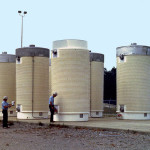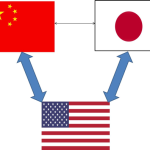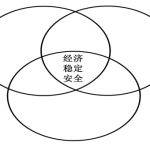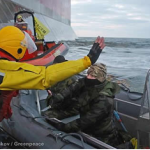
This is the first half of a two part article from Professor Yang Wenjing of the China Institute for Contempora…

This is the first half of a two part article from Professor Yang Wenjing of the China Institute for Contempora…

This Special Report by David von Hippel looks at the relative impacts of different fuel cycle options on other aspect of (broadly defined) energy security.
In this Special Report von Hippel presents a summary of the current status of and recent trends in electricity consumption in general, and nuclear generation capacity in particular, in the nations of East Asia and the Pacific, offer three future scenarios of nuclear power development in the region (section 2); notes some of the options for nuclear fuel cycle cooperation that have been previously offered for the region, and describe and evaluate four potential scenarios for nuclear fuel cycle cooperation (or non-cooperation) in the region (section 3); and describes some of the key conclusions of the analysis of fuel cycle options for energy security policies in the region (section 4).
David F. von Hippel is a Nautilus Institute Senior Associate. His work with Nautilus has centered on energy and environmental issues in Asia, with a particular emphasis on Northeast Asia and North Korea.

[Chinese Version] This is the second half of a two part Special Report from Professor Yang We…

[Chinese Version] This is the first part of a two part Special Report from Professor Yang Wen…

In this essay, Nikhil Desai criticizes the violent Russian attack on the Greenpeace ship and the subsequent pre-trial detention of 30 activists. He argues that if concerns of energy security are allowed to degenerate into hallucinations of dominating the Arctic and brutal treatment of non-violent civic action, Russia or other such countries cannot be held to be responsible members of the international community of law-abiding states. The most powerful man in the world may now also be the most dreadful.
Nikhil Desai is an energy and environmental economist now dividing his time between Washington, DC and Ahmedabad, India.
DETERRENCE: General Herbert J. “Hawk” Carlisle Commander, Pacific Air Forces, transcript
DPRK: Agreements on Cooperation Between Governments of DPRK
ENERGY SECURITY: The Buck Stops Nowhere
GOVERNANCE AND CIVIL SOCIETY: Park proposes ‘Silk Road Express’ to Connect Eurasian Nations
CLIMATE CHANGE ADAPTATION: Climate Change and Health: A Tool to Estimate Health and Adaptation Costs
AUSTRAL PEACE AND SECURITY: The Nuclear War Scare of 1983: How Serious Was It?